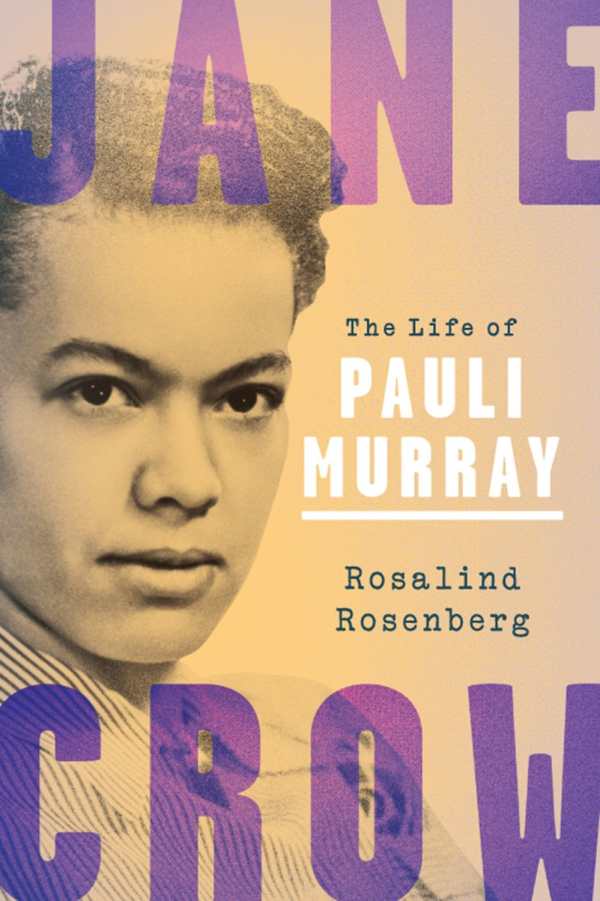Jane Crow
The Life of Pauli Murray
Rosalind Rosenberg’s long-delayed biography, Jane Crow: The Life of Pauli Murray, uses the papers of Pauli Murray deposited at Radcliffe’s Schlesinger Library to give voice to Murray’s experience in a way Murray couldn’t in her own time. Mentee of Eleanor Roosevelt, mixed-race middle-class Southerner of the Jim Crow era, gender dysphoric, poet, lawyer, professor, Episcopal priest, and civil rights activist, Pauli Murray lived an epic life and laid claim to many identities. Because, and sometimes in spite of this, Murray, a person who never stayed in one place for more than a few years, made a life in social justice.
But, just like the prophet who is not accepted in his hometown, the communities in which Murray worked often found her personally uncomfortable and her work either too radical or seemingly self-obvious. Many overlooked Murray’s role as a visionary, yet her work as a lawyer and activist presaged several major civil rights fights, including racial segregation, private housing discrimination, and gender discrimination, among others. Murray’s efforts culminated in coining “Jane Crow”—a term for the double oppression experienced by black women. “Jane Crow” helped Murray address much of her lived experience but not her gender dysphoria. After early unsuccessful bids for medical intervention, Murray internalized her feelings of “betweenness” and suffered under heteronormative pressures regarding her gender and sexual expression. Ultimately, Murray never experienced the civil rights movement that may have enabled her to name and resolve this experience of her body. Rosenberg tells Murray’s story as she lived it but also casts a well-informed, modern eye on the intersections and omissions within that life. Her striking interpretive work clearly shows what Murray herself suspected: that everything Murray did was “part of history … an instrument for achieving things.”
Reviewed by
Letitia Montgomery-Rodgers
Disclosure: This article is not an endorsement, but a review. The publisher of this book provided free copies of the book to have their book reviewed by a professional reviewer. No fee was paid by the publisher for this review. Foreword Reviews only recommends books that we love. Foreword Magazine, Inc. is disclosing this in accordance with the Federal Trade Commission’s 16 CFR, Part 255.

